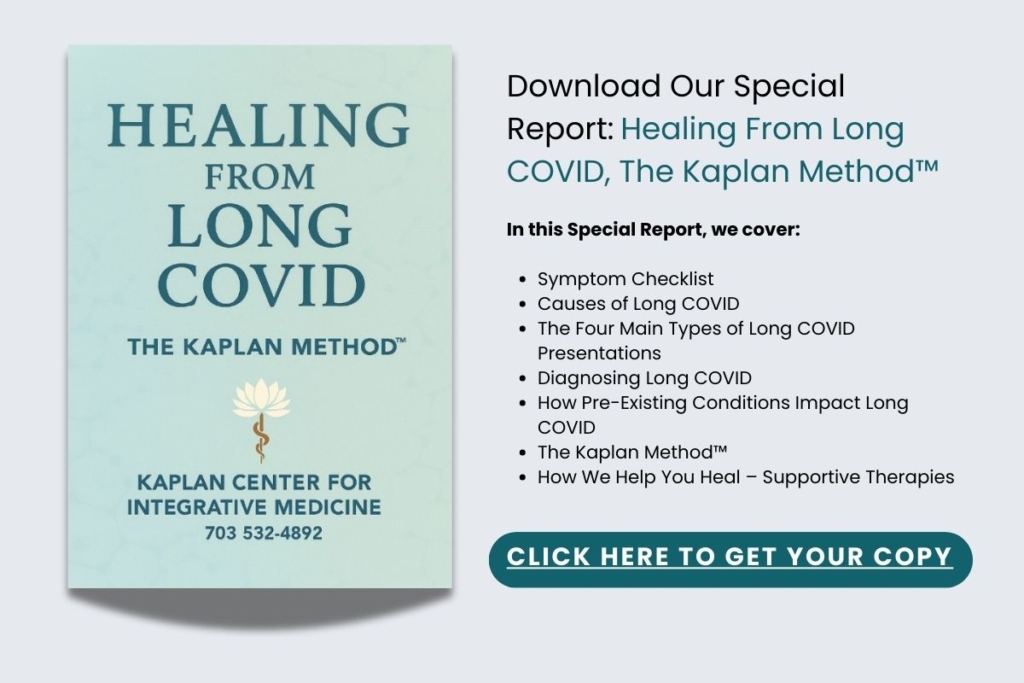Long-COVID Syndrome: Symptoms, Diagnosis, Management
When COVID-19 was first discovered, many predictions were made about how the virus would behave. Most of these predictions were based around how other known respiratory viruses have evolved in the past. However, COVID-19 has been anything but predictable. Emerging variants, unexpected effects on pregnancy and the surprising persistence of some symptoms has made COVID-19 uniquely challenging. This is particularly true in the case of post-COVID syndrome, a condition where the symptoms of COVID-19 continue to persist weeks after initial infection.
What is Long-COVID Syndrome?
Long-COVID syndrome may be referred to as post-COVID or long-haul COVID. Long-COVID syndrome is a wide range of new or persisting symptoms that COVID-19 sufferers experience weeks after they were first infected.
By now, an estimated 3.2 million Americans are thought to have Long-COVID Syndrome – a figure that translates to approximately 10% of COVID-19 cases. But this is just an estimate. The true number is likely much higher.
Symptoms and Signs of Long-COVID Syndrome
COVID-19 can affect almost any organ in the body. In Long-COVID Syndrome, the most reported signs and symptoms are
- Tiredness or fatigue
- Cough
- Shortness of breath
- Loss of smell or taste
- Digestive problems such as diarrhea
- Difficulty thinking or concentrating (sometimes referred to as “brain fog”)
- Symptoms that get worse after physical or mental activities (also known as post-exertional malaise)
- Pins-and-needles feeling
- Dizziness on standing
- Joint or muscle pain
- Depression or anxiety
- Changes in menstrual period cycles
Other documented symptoms include
- Myalgic encephalomyelitis/chronic fatigue syndrome (ME/CFS) – Some who have recovered from COVID-19 have gone on to develop ME/CFS, a disorder characterized by extreme fatigue and tiredness.
Who Gets Long-COVID Syndrome and Why?
The picture around Long-COVID remains unclear. Unfortunately, there is still a lot we don’t know such as who gets it, why they get it, or how long the condition will last. Researchers will continue the search for answers to these questions but for now, much remains unknown.
Furthermore, the severity of the original COVID-19 infection appears not to determine whether you develop post-COVID syndrome or not. Even those with minor cases of COVID-19 that did not require hospitalization or were asymptomatic may still have post-COVID syndrome. Conversely, some with severe cases of COVID-19 have gone on to recover completely.
At the Kaplan Center our providers continue to manage Long-COVID Syndrome by assessing each patient, considering their own set of circumstances and working with them to come up with a tailored management plan.
Diagnosing & Managing Long-COVID Syndrome – The Kaplan Method™
The diagnosis of Long-COVID Syndrome may have taken some individuals through a difficult journey. Sufferers of long-COVID may have experienced misdiagnosis, due to the similarity of its symptoms to other illnesses, or indifference, leaving the patient to endure symptoms with the hope they will resolve on their own.
At the Kaplan Center, our physicians will take a thorough medical history and explore the onset of physical symptoms while equally considering an individual’s emotional well-being. We will ask you about previous illnesses and consider how your immune system may have previously been damaged in the past. We may explore possible exposure to toxins or heavy metals. We may also ask questions about how well your gastrointestinal system is functioning. All this information will give us a better understanding of your health to determine whether your symptoms solely due to COVID or if underlying illness may be contributing.
Other tests that may be carried out:
- Blood tests – this includes looking for certain biomarkers or elements within the blood that may reflect any damage to the immune system.
- An evaluation of minerals and vitamins – to look for low levels of these nutrients.
- Digestive tests – to help determine if there are pre-existing digestive issues.
This combination of medical history, physical examination and diagnostic tests will be used to guide our diagnosis and put together a comprehensive treatment plan.
Long-COVID syndrome appears to be a multisystem disease. This means that multiple systems such as the stomach, nerves, heart or lungs may be affected. Our goal is to treat this complex problem by taking a holistic, whole-body approach. This is our specialty—we’ve been treating chronic illnesses for decades. Our years of expertise in this field, has allowed us to develope a holistic and integrative diagnostic and treatment approach that we can tailor to each of our patient’s needs.
The Kaplan Method™ is a personalized, precision-based program designed to uncover and reverse the root causes of chronic illness by healing the immune system. Your treatment may include one or more of the following:
- Nutrition – Personalized dietary adjustments to optimize gut health
- Nutrition Replacement – Restoring essential minerals and vitamins
- Psychotherapy, EMDR & Guided Meditation – Addressing mental well-being and emotional healing
- Sleep Evaluation & Management – Improving sleep quality for better overall health
- Acupuncture – Aiding in pain relief and restoring balance
Managing Long-COVID Syndrome is something that our team at Kaplan can help with. By taking a holistic approach to healthcare our team is equipped to listen and work with our patients to jointly come up with management plans that are tailored to their needs.
We are here for you, and we want to help.
Our goal is to return you to optimal health as soon as possible. To schedule an appointment please call: 703-532-4892 x2
References
- https://www.apa.org/monitor/2021/07/treating-long-covid
- https://www.mayoclinic.org/diseases-conditions/coronavirus/in-depth/coronavirus-long-term-effects/art-20490351
- https://www.cdc.gov/me-cfs/index.html
- https://www.cdc.gov/coronavirus/2019-ncov/long-term-effects/






Leave a Reply
Want to join the discussion?Feel free to contribute!